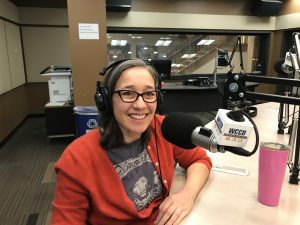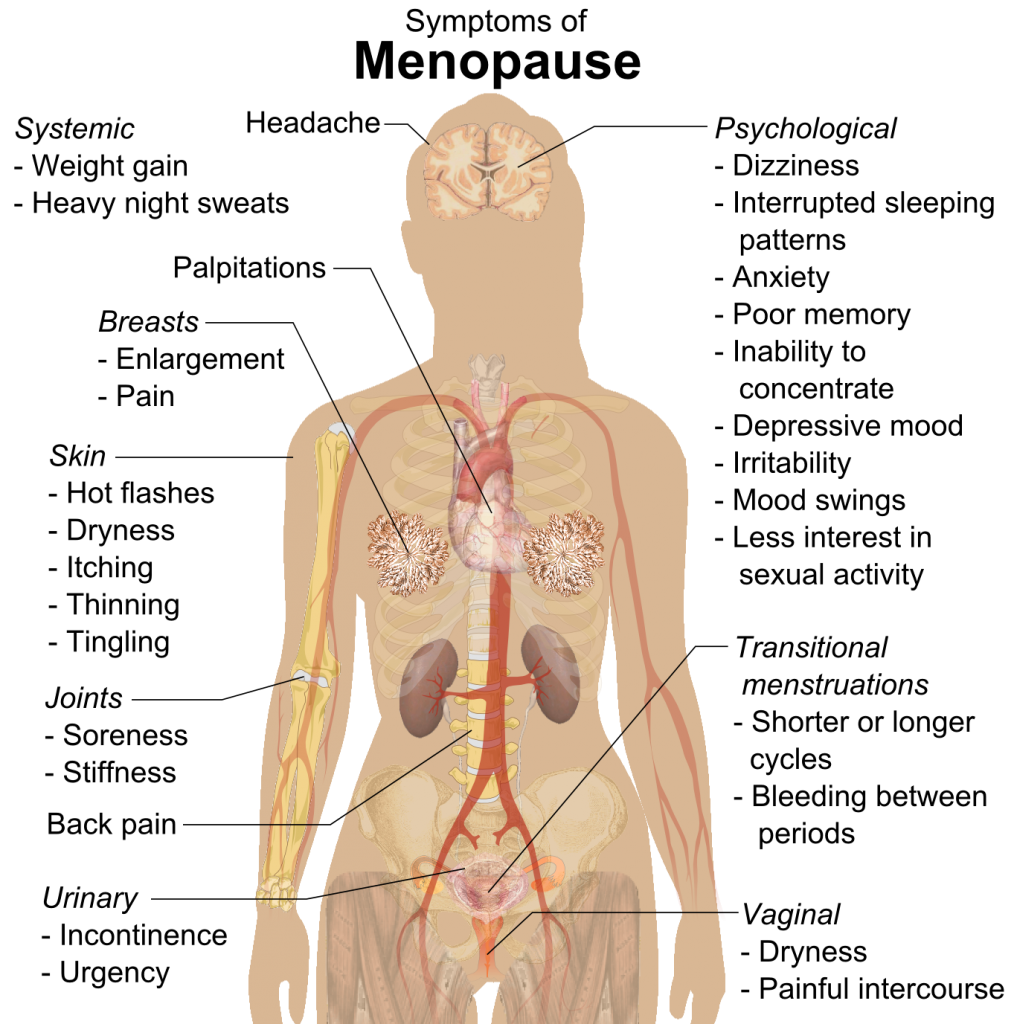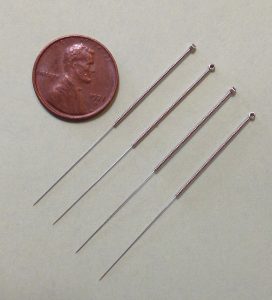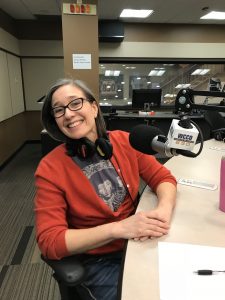 Our Healthy Matters show last week focused on menopause. We billed the show as being about “Women’s Health” and as we all know, women’s health is more than menopause. But I had an expert in the studio and there is so much interest in menopause! So we focused on that specific topic. This post recaps a few learning points from the show.
Our Healthy Matters show last week focused on menopause. We billed the show as being about “Women’s Health” and as we all know, women’s health is more than menopause. But I had an expert in the studio and there is so much interest in menopause! So we focused on that specific topic. This post recaps a few learning points from the show.
If you are looking to register to be an audience member for our Decade with Dave live radio broadcast on June 10, or for the Here 4 Health community education series, click here.
If you missed the show (Healthy Matters show #488, May 20, 2018), listen to the abbreviated podcast by clicking the banner:![]()
In this post, you’ll read about:
- Basics of menopause
- What’s a hot flash and what can be done about it
- Acupuncture in the treatment of menopause symptoms
I was joined in the studio by Dr. Tara Gustilo, the Chief of Obstetrics and Gynecology at Hennepin Healthcare. Her practice includes the full range of women’s health care from delivering babies to chronic and preventive care to menopause and aging. She also teaches future doctors through the Department of Obstetrics and Gynecology. Not only that, she does acupuncture for a broad range of conditions for both men and women. Click on her name above for more about Dr. Gustilo, or here for a complete listing of OB/Gyn providers at Hennepin.
Menopause. What is going on here?
Dr. Gustilo helped us all understand a little better what is happening in a woman’s body at menopause. Here’s a few things we learned (on the podcast this part starts at time 8:02):
- Average age of menopause is 51 years old.
- Menopause usually takes two years to get through.
- Menopause is caused when a woman’s ovaries stop producing the two major female hormones estrogen and progesterone as well as a small amount of testosterone and other hormones.
- Menopause is normal and natural.
- Initially, menstrual cycles start getting irregular, eventually stopping altogether. Once a woman has not had a menstrual period for a year, then menopause is consider to have completed.
Symptoms of menopause
Women experience a wide range of symptoms just before, during, and after menopause. Here’s a pretty decent visual summary:
On the radio, broadcast, I asked Dr. Gustilo if one of the symptoms – hot flashes – is “normal.” I immediately thought better of using the word “normal” – what is normal anyway? We chuckled a bit and said that hot flashes are certainly “common” which is probably a better term. One listener (at 11:55 of the podcast) chided me and said, “Dr. H, normal is a setting on your washing machine.” I humbly agree!
Which leads to the next section . . .
What are hot flashes?
This may be one of the more common symptoms women encounter. Dr. Gustilo pointed out that some women never have a hot flash. I guess these are the charmed few, eh? Some women experience just a few hot flashes, while others get numerous hot flashes that can last for years.
But what are hot flashes? What causes them? And how can women get some relief? (On the podcast, we talk about this topic at time 9:30)
- The cause is not completely known.
- Some central cause in the brain likely triggers them.
- Hot flashes are a sudden internal feeling of warmth.
- A woman’s skin actually gets a bit warmer during a hot flash (so I guess they are well-named).
- Hot flashes are among the symptoms of menopause called vasomotor symptoms, since the blood vessels dilate (which causes the flushing and warm sensation).
- Hot flashes are not thought to be dangerous. Annoying, yes. Downright bothersome, for sure. But not likely dangerous in the long-term.
What can be done about hot flashes?
The first thing Dr. Gustilo counsels women about hot flashes is lifestyle modications. Some simple interventions include:
- Layering clothing. She suggests investing in some cardigan sweaters!
- Physical exercise seems to be helpful.
- Anything to reduce stress in your life. Stress can make things worse in menopause as in many areas of life.
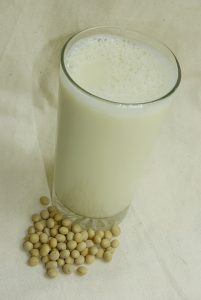 Foods. Some foods have natural estrogens, such as soy products and flax seed, so for some women, that can help. Perhaps a glass of soy milk at bedtime may help – since symptoms are often worse during sleep.
Foods. Some foods have natural estrogens, such as soy products and flax seed, so for some women, that can help. Perhaps a glass of soy milk at bedtime may help – since symptoms are often worse during sleep.- Medications. The most effective pharmacologic (medication) treatment of hot flashes is systemic hormone replacement. We talked on the air a bit about the ups- and downs- of hormone replacement therapy. But one thing is fairly well-established about estrogen-replacement: it is an effective treatment for hot flashes. And despite legitimate concerns about safety in the long-term, there are many women for whom a low-dose estrogen plan, especially in the first 10-years after menopause and before age 60, can be really helpful and with less risk that may be thought. Of course, this is a personal choice between women and their doctors. We talked about the history of estrogen replacement on the show, including the history and the effect on a women’s heart and breast cancer risks. It’s a good “quality of life” vs “risk” discussion. Have a listen at time 15:06 on the podcast.
- Other medications may help as well. Dr. Gustilo told us about anti-depressants and other non-hormonal medications. Although in this case they are being taken for hot flashes and not depression, they do seem to help. Listen to her speak to this issue at time 14:42.
Lastly, we talked about acupuncture as a treatment for menopausal symptoms. This part is cool so warrants its own section.
Acupuncture for menopause symptoms
In addition to her gynecology practice, Dr. Gustilo is a fully-trained acupuncturist. Yup, she’s both an MD and an general acupuncturist. She performs this treatment on both men and women for a variety of indications, but a large percentage of her patients are women with menopausal symptoms.
So I asked her: does it work? Listen to this section at point 22:50.
There is some (plus/minus) scientific data that acupuncture is beneficial for a variety of issues. But in her practice, where roughly a third of her patients are being treated with acupuncture for menopause symptoms, Dr. Gustilo’s patients report that it really has helped them. It has helped with hot flashes, sleep problems, and fatigue. Sometimes emotional changes are helped with acupuncture.
Although we didn’t talk on the air about side effects and safety, I did chat with Dr. Gustilo off the air about the risks of acupuncture.
And who know what? There are really very few risks.
Of course, nothing is 100% risk-free, but complications from acupuncture are really not common at all. Although we don’t have much scientific data to go on, I think it is reasonable to conclude that when practiced by an trained and experienced acupuncturist, the risk of any significant harm is quite low. I also believe that the risk is probably lower than the risk for many of the medical treatments and medications that I routinely prescribe.
For another brief look at acupuncture, check out my post from September 2017 called An Introduction to Acupuncture and Chiropractic Care.
So perhaps more women may want to try this low-risk procedure and potentially helpful treatment. After all, acupuncture has been practiced for thousands of years!
I’ll close with contact information for Dr. Gustilo. If you want to see her for any of your women’s health needs, either click here at Hennepin Healthcare, or call the scheduling line at 612-873-6963.
Thanks for stopping by! If you like what you see here, please subscribe by e-mail below, and follow me on Twitter @DrDavidHilden
#healthymatters
